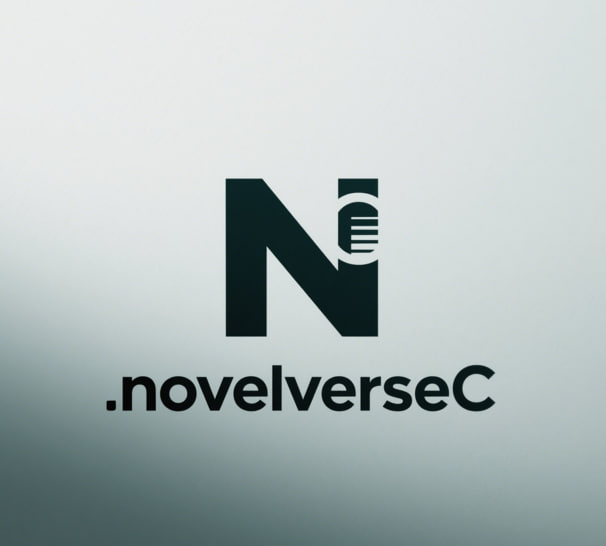No flowers for the dead - Chapter 38: Chapter 38
You are reading No flowers for the dead, Chapter 38: Chapter 38. Read more chapters of No flowers for the dead.
The letter sat untouched on the kitchen counter.
Alina hadn’t meant to leave it out, not really. She’d just been holding it all day—reading it, rereading it, weighing every word as if somehow it might shift in meaning the longer she stared.
She hadn’t planned on Elara coming by that evening.
And she certainly hadn’t planned on her daughter picking up the envelope and reading the name:
Lisette.
“Who’s this?” Elara asked, her tone light but curious.
Alina froze.
For a moment, she considered lying. Saying it was nothing. That it was old. That it didn’t matter anymore.
But Elara had grown too much for half-truths.
She was no longer a child, and Elias was no longer just her father.
“He had a daughter,” Alina said quietly. “Before us. Before everything.”
Elara didn’t move.
Not at first.
Then she sat, slowly, as if her knees had forgotten how to hold her.
⸻
“A sister?” she said after a long silence. “I have a sister?”
“She’s your blood,” Alina said. “Half. But yes.”
Elara shook her head—not in denial, but in disbelief.
“How long have you known?”
“Since yesterday,” Alina admitted. “The letter was tucked away. Elias never sent it.”
“And you believe it’s real?”
“I do.”
Another long silence settled between them. This one deeper, heavier.
It wasn’t anger that flickered in Elara’s eyes—it was something more complex.
Displacement.
Jealousy.
Curiosity.
A hollow kind of mourning for the version of her father she never got to meet.
⸻
“I thought I knew him,” she whispered.
“You did,” Alina replied. “But none of us ever really know someone completely. Not even the ones we love most.”
Elara swallowed hard.
“Did you hate him, when you read it?”
Alina shook her head.
“No. I ached for him. For all the things he couldn’t say. All the pieces of himself he must’ve buried trying to protect us.”
Elara’s eyes glistened.
“And Rae? What happens now?”
“I wrote her,” Alina said. “I don’t know if she’ll respond. But if she does, she’ll be welcome. This house, this family—if she wants it, it’s hers too.”
⸻
That night, Elara sat at her desk in the bookstore apartment, the city lights outside blinking like distant stars.
She opened her laptop and started a new entry for .
But this time, she didn’t write about Elias.
She wrote about Rae.
About the weight of being someone’s legacy when you didn’t even know you shared it.
About what it means to realize your grief is not yours alone.
And about learning how to hold space for someone else’s pain beside your own.
She ended the post with a single sentence:
If you’re reading this, Rae, there’s room in the story for you too.
Alina hadn’t meant to leave it out, not really. She’d just been holding it all day—reading it, rereading it, weighing every word as if somehow it might shift in meaning the longer she stared.
She hadn’t planned on Elara coming by that evening.
And she certainly hadn’t planned on her daughter picking up the envelope and reading the name:
Lisette.
“Who’s this?” Elara asked, her tone light but curious.
Alina froze.
For a moment, she considered lying. Saying it was nothing. That it was old. That it didn’t matter anymore.
But Elara had grown too much for half-truths.
She was no longer a child, and Elias was no longer just her father.
“He had a daughter,” Alina said quietly. “Before us. Before everything.”
Elara didn’t move.
Not at first.
Then she sat, slowly, as if her knees had forgotten how to hold her.
⸻
“A sister?” she said after a long silence. “I have a sister?”
“She’s your blood,” Alina said. “Half. But yes.”
Elara shook her head—not in denial, but in disbelief.
“How long have you known?”
“Since yesterday,” Alina admitted. “The letter was tucked away. Elias never sent it.”
“And you believe it’s real?”
“I do.”
Another long silence settled between them. This one deeper, heavier.
It wasn’t anger that flickered in Elara’s eyes—it was something more complex.
Displacement.
Jealousy.
Curiosity.
A hollow kind of mourning for the version of her father she never got to meet.
⸻
“I thought I knew him,” she whispered.
“You did,” Alina replied. “But none of us ever really know someone completely. Not even the ones we love most.”
Elara swallowed hard.
“Did you hate him, when you read it?”
Alina shook her head.
“No. I ached for him. For all the things he couldn’t say. All the pieces of himself he must’ve buried trying to protect us.”
Elara’s eyes glistened.
“And Rae? What happens now?”
“I wrote her,” Alina said. “I don’t know if she’ll respond. But if she does, she’ll be welcome. This house, this family—if she wants it, it’s hers too.”
⸻
That night, Elara sat at her desk in the bookstore apartment, the city lights outside blinking like distant stars.
She opened her laptop and started a new entry for .
But this time, she didn’t write about Elias.
She wrote about Rae.
About the weight of being someone’s legacy when you didn’t even know you shared it.
About what it means to realize your grief is not yours alone.
And about learning how to hold space for someone else’s pain beside your own.
She ended the post with a single sentence:
If you’re reading this, Rae, there’s room in the story for you too.
End of No flowers for the dead Chapter 38. Continue reading Chapter 39 or return to No flowers for the dead book page.
